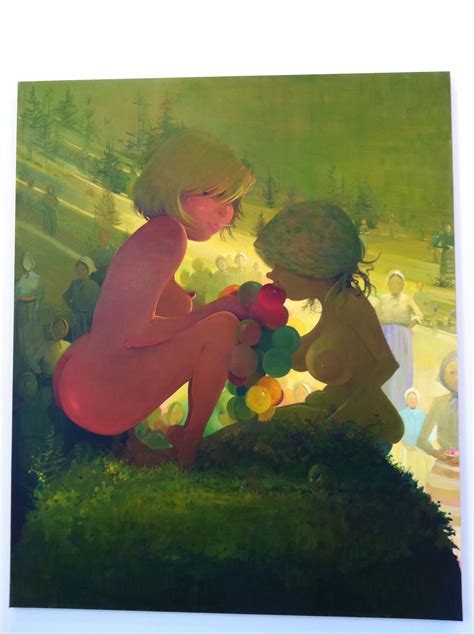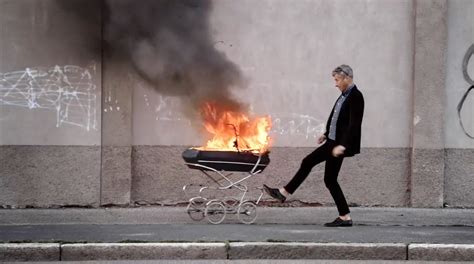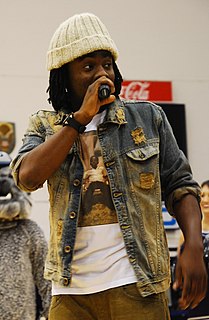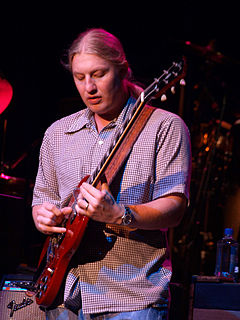A Quote by Chuck Close
Part of the joy of looking at art is getting in sync in some ways with the decision-making process that the artist used and the record that's embedded in the work.
Related Quotes
When we even use the term 'specialized world,' we already have a problem! We're making art; they are making art... these worlds are not far apart from each other. For instance, pieces of art that hang on a wall can be seen in museums or can be used in a variety of commercial ways. That art is everywhere, so the message is that it's a part of everyday life.
Exciting underground stuff is easier to find with YouTube than it used to be. You don't have to go to the dive bar in the bad part of town to see a band you would never usually see. My personal experience with it, when I was looking for a new lead guitarist, I was able to stalk guitarists on Youtube. And instead of having a horribly embarrassing auditioning process, I could check out peoples' playing. In some ways, you go into a record shop and the selection is narrower than it used to be with pop ruling the roost, but if you look, there's so much more to be found.
Art is frightening. Art isn't pretty. Art isn't painting. Art isn't something you hang on the wall. Art is what we do when we're truly alive. An artist is someone who uses bravery, insight, creativity, and boldness to challenge the status quo. And an artist takes it (all of it, the work, the process, the feedback from those we seek to connect with) personally.
I think my first experience of art, or the joy in making art, was playing the horn at some high-school dance or bar mitzvah or wedding, looking at a roomful of people moving their bodies around in time to what I was doing. There was a piano player, a bass player, a drummer, and my breath making the melody.
To have an idea meritocracy, one needs to do three things. First, they have to put their honest thoughts on the table, for everyone to look at and everyone to work through. Second, they need to have thoughtful disagreement, by which there are quality exchanges, in which there's open mindedness and the realization that no one has all the right answers. And you can work through that and get to better answers because good collective decision making is better than any individual decision making. And third, you have to have ways of getting past the disagreements if they remain.
That's what I like about the idea of the aesthetic experience, the idea of both enjoying looking at works of art and how they kind of talk to you, and also the process of making art, getting back to that idea of the aesthetic experience of making art is very important, It's another way of thinking. Instead of just using your brain, you're using your hands to think with. They're different connections, the brain that comes through the fingertips as opposed that comes through the eyes and ears.
I'm not very comfortable with watching my performances. I don't particularly find a great joy in it. Everything is the process of making it, of getting it, getting the job, saying yes to the job. Those are the joys. Making it is the greatest joy. And then, you have to show the bloody thing. You have to show and tell, be judged. But I don't listen. I don't pay much attention. I hear the rumblings of greatness or the arrows of discontent and harsh words. Then you go, "Oh God. Why?"
A lot of the gear came out of some of the old studios here in New York City. We picked up a lot of old microphones, reverb tanks, tape machines, so yeah, we try to record the old way, which takes more time and energy, but it certainly feels better when you're getting to the end of the process of making a record.
I was so unsuccessful for so long. I was used to the word no. I was used to you're not good enough or not quite there or you need to fix this about you. So I am honestly walking in faith every single day that I am going to be able to handle whatever God has for me. I am not used to being in a place where people appreciate my work and understand my work and want to be a part of my work and getting something out of my work because for so long it was so misunderstood. The success part for me is the hardest part and everyday I'm still battling.








































